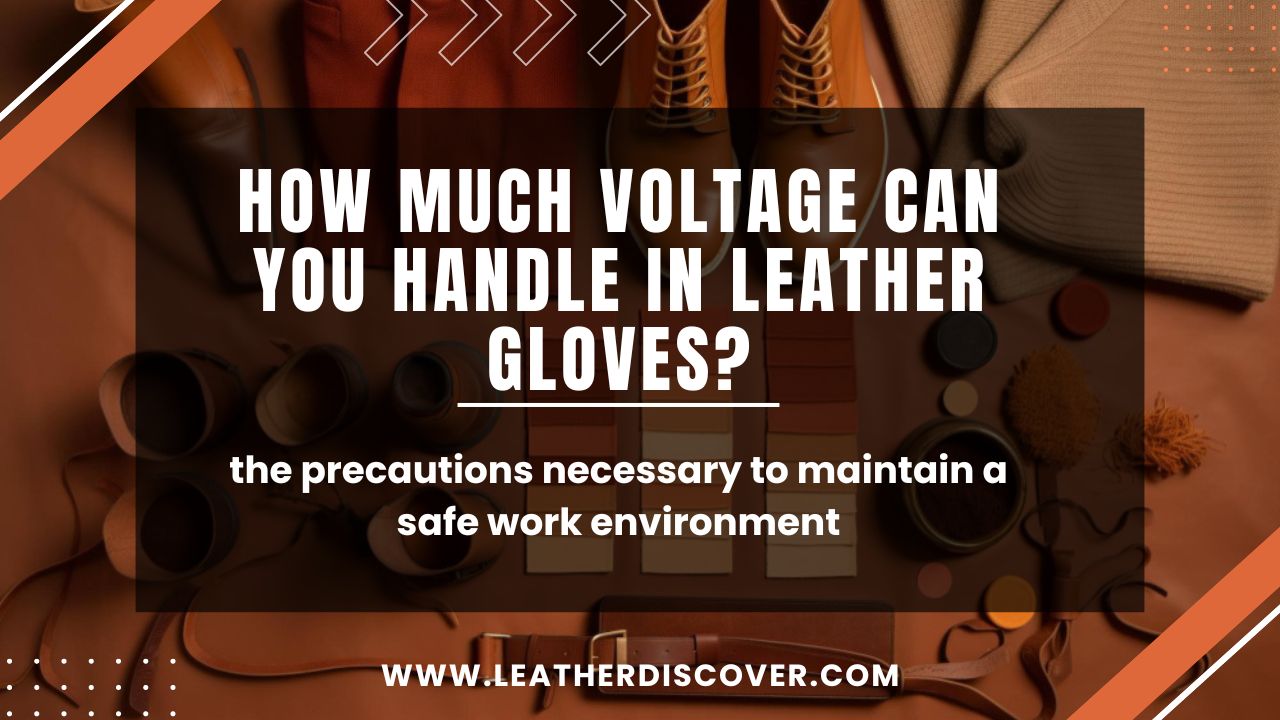If you work with electricity, you’ve probably wondered about the safety of using leather gloves.
How much voltage can you handle in leather gloves?
The direct answer is that leather gloves by themselves are not rated for electrical protection and should not be relied upon to handle any voltage safely.
However, when it comes to tasks involving electricity, understanding their limitations in terms of voltage tolerance is crucial for ensuring safety.
I remember my first electrical project, feeling unsure about whether my trusty leather gloves were enough to keep me safe? It’s a common concern, and the stakes are high when dealing with electrical safety.
So, why should you keep reading?
Because while leather gloves alone aren’t sufficient, they can still play a crucial role when used over proper insulating gloves.
In this guide, we’ll discuss the limitations of leather gloves, their role in electrical safety when combined with proper gear, and the essential precautions you need to take to stay safe.
By the end, you’ll know exactly how to protect yourself effectively while working with electricity.
Let’s get started and ensure your safety with the right knowledge!
[toc]

How Much Voltage Can You Handle in Leather Gloves?
Leather gloves can provide some electrical insulation, but their ability to protect against electric shock depends on various factors, including the type of leather, its thickness, and the specific conditions of the electrical hazard.
Leather gloves are generally not intended for high-voltage electrical work.
Here’s a table to provide a rough guideline on how much voltage can you handle in leather gloves:
| Voltage Level | Leather Glove Suitability | Notes |
|---|---|---|
| Low Voltage | Suitable (But not recommended) | Leather gloves may offer protection against low-voltage electrical work, such as household electrical systems (110V-240V). However, they are not recommended, use insulated gloves designed for electrical work for increased safety. |
| Medium Voltage | Not Recommended | Leather gloves are generally not suitable for medium-voltage electrical work (1kV-69kV). Specialized electrical gloves with proper insulation should be used in these situations. |
| High Voltage | Not Suitable | Leather gloves should never be used for high-voltage electrical work (69kV and above). Only certified electrical gloves and equipment should be used in high-voltage environments. |
It’s crucial to prioritize safety when working with electricity. Always use the appropriate personal protective equipment (PPE) and follow safety guidelines and regulations specific to your electrical work.
If you are uncertain about the level of protection required, consult with a safety professional or electrician for guidance.
Does Leather Conduct Electricity?
Leather is not a good conductor of electricity. It is considered an insulator, which means it does not readily allow the flow of electric current.
However, the electrical resistance of leather can vary depending on its thickness, moisture content, and other factors.
Gloves made of leather alone do not provide sufficient protection against electric shock, especially in situations where there is a risk of contact with live electrical components.
Leather gloves are typically not designed or rated for electrical insulation and are not suitable for use in electrical work.
To protect against electric shock, specialized electrical safety gloves made of rubber or other insulating materials are used.
These gloves are designed and tested to withstand specific voltage levels and provide a barrier against electrical current.
Are Leather Gloves Strong?
Regarding strength, leather gloves can be quite strong and durable, depending on the type of leather and how they are constructed.
Leather is known for its toughness and resistance to wear and tear, which makes it a popular choice for various types of gloves, including work gloves, driving gloves, and fashion gloves.
The strength of leather gloves also depends on their design and the quality of the leather used in their construction.
Are Leather Gloves Punctured Proof?
Leather gloves are not considered puncture-proof. Their resistance to punctures depends on the type of leather used and its thickness.
While leather is durable and provides some level of puncture resistance, it may not be sufficient protection against sharp objects or puncture hazards in certain industrial or occupational settings.
Some leather gloves are reinforced with additional materials to enhance puncture resistance, but they are not entirely puncture-proof.
Are Leather Gloves Suitable for Electrical Sparks?
No, leather gloves are not suitable for protection against electrical sparks or electrical shock.
Leather is considered a poor conductor of electricity, which means it has some insulating properties.
However, it’s important to note that leather is not a reliable insulator when it comes to electrical safety. It may provide limited resistance to the flow of electric current, but it is not a suitable insulating material for protecting against electrical shock or working with electricity.
For tasks involving electrical hazards, especially those with specific voltage levels, it is essential to use specialized electrical safety equipment, including gloves and clothing, made from materials that are specifically designed, tested, and rated for electrical insulation.
Leather, while a versatile material for various applications, should not be relied upon for electrical insulation or protection against electrical shock.
Conclusion:
So, now you know how much voltage can you handle in leather gloves.
While leather gloves offer durability and protection for various tasks, they are not suitable for tasks involving electrical hazards or specific voltage-related work. Leather gloves do not provide the necessary insulation and protection against electrical shock.
For electrical work, it is imperative to use specialized electrical safety gloves that are designed, rated, and tested for specific voltage levels.
The safety of individuals working with electricity must always be a top priority, and the correct choice of protective gear, including gloves, is essential to mitigate the risks associated with electrical exposure.
- What Is Caiman Leather? A Detailed Guide - July 25, 2024
- What Is Tumbled Leather?A Complete Guide - July 25, 2024
- What Is Kip Leather? Premium Leather Choice - July 24, 2024

